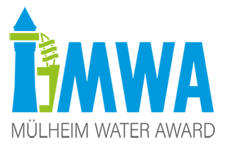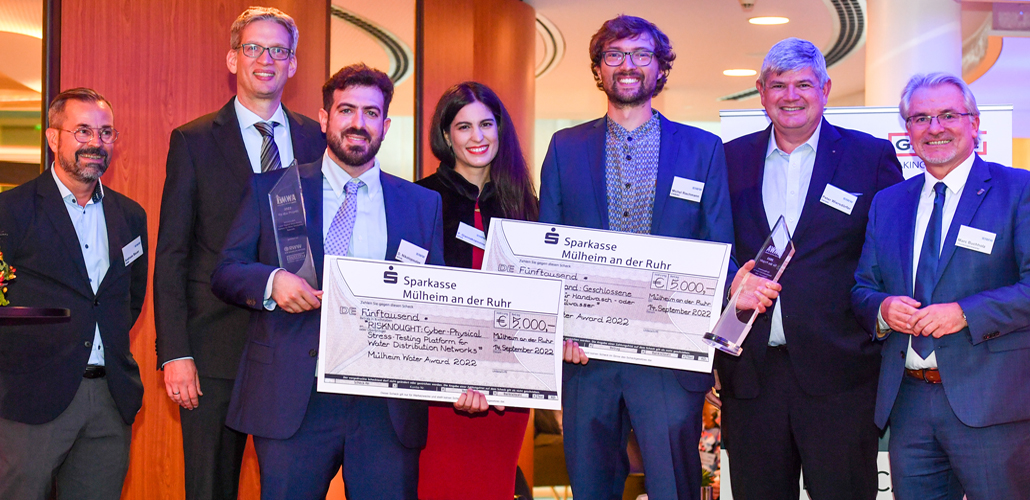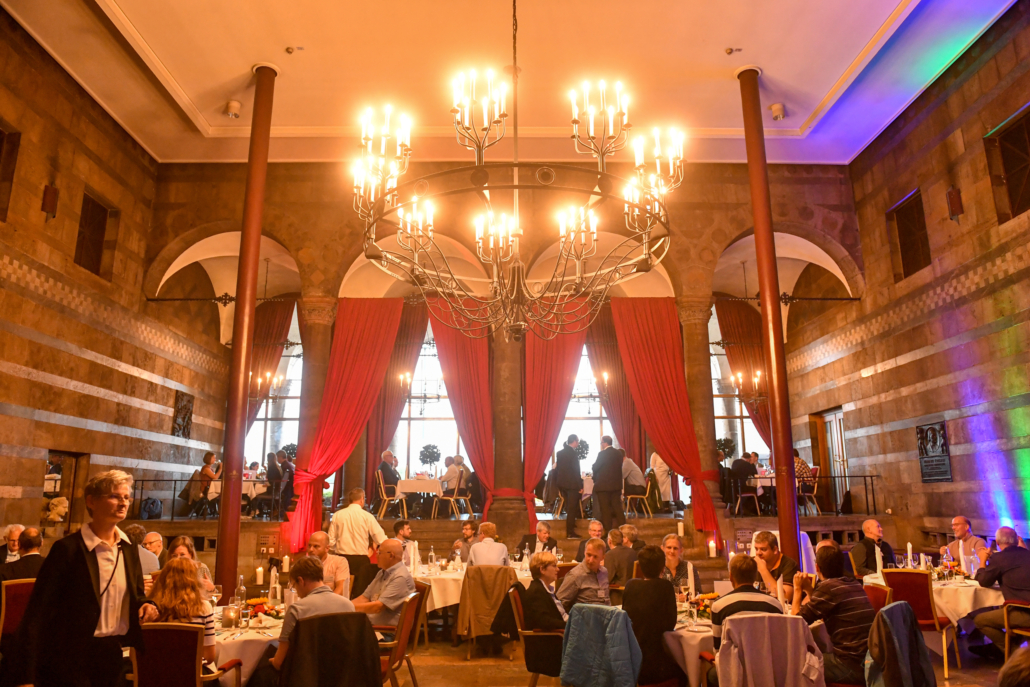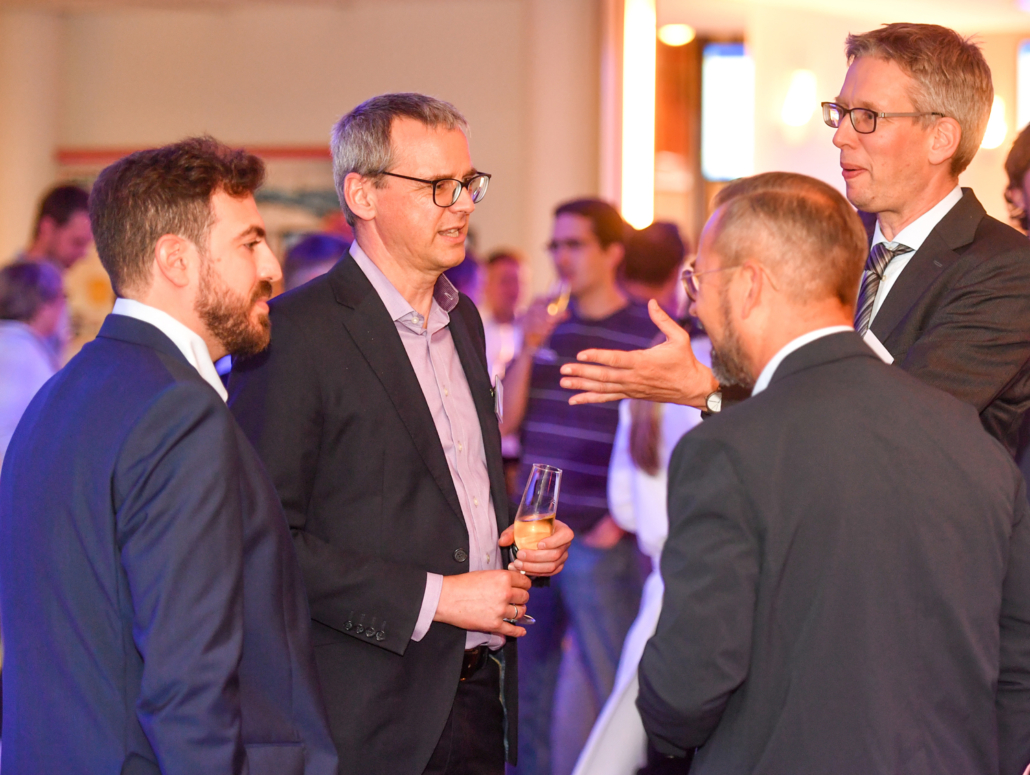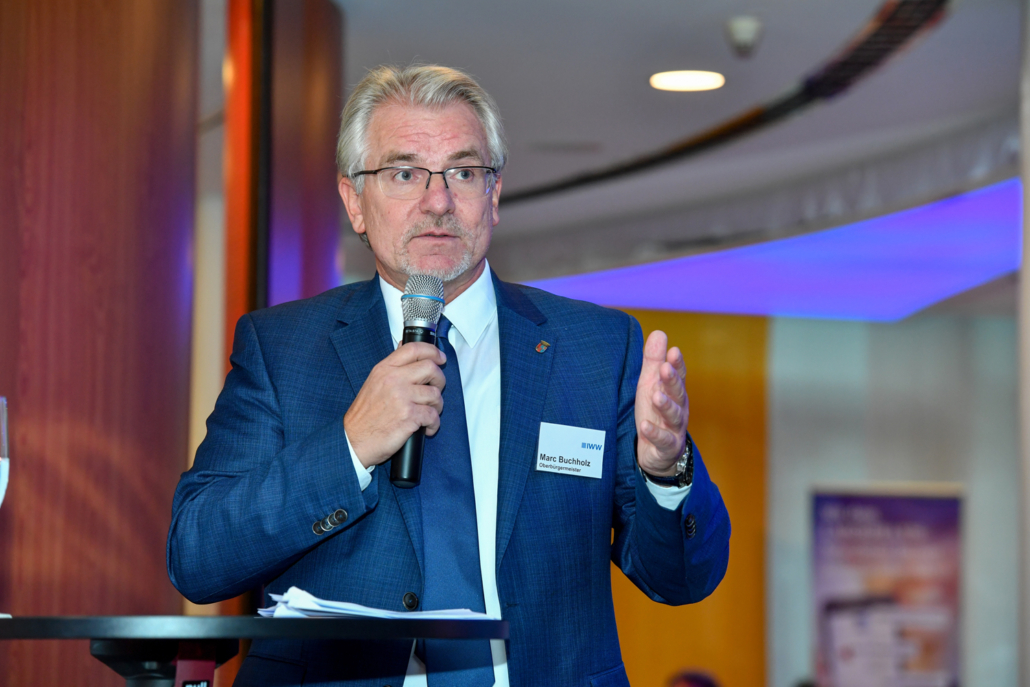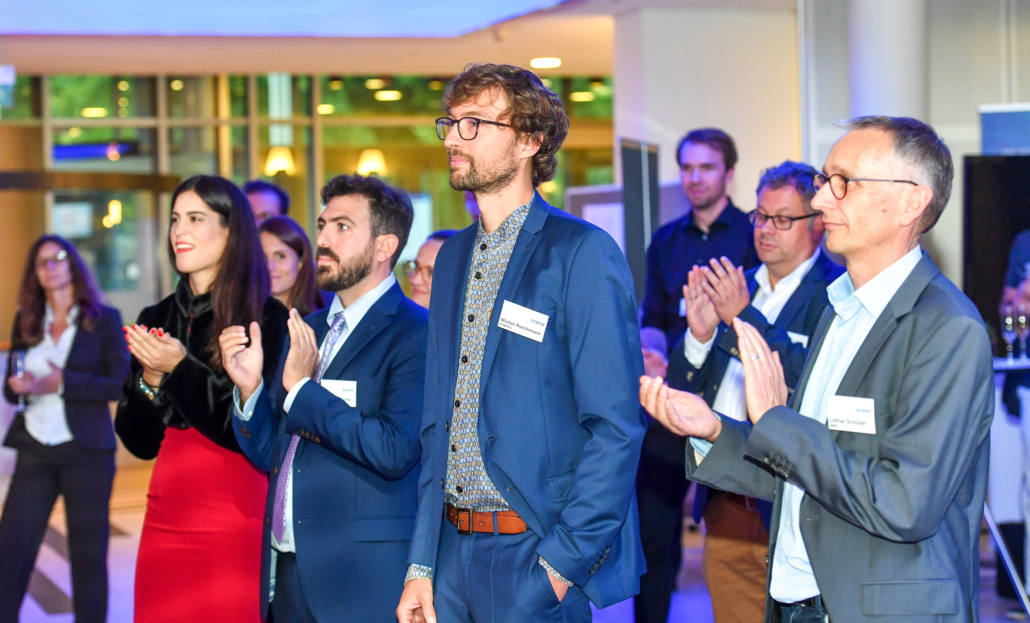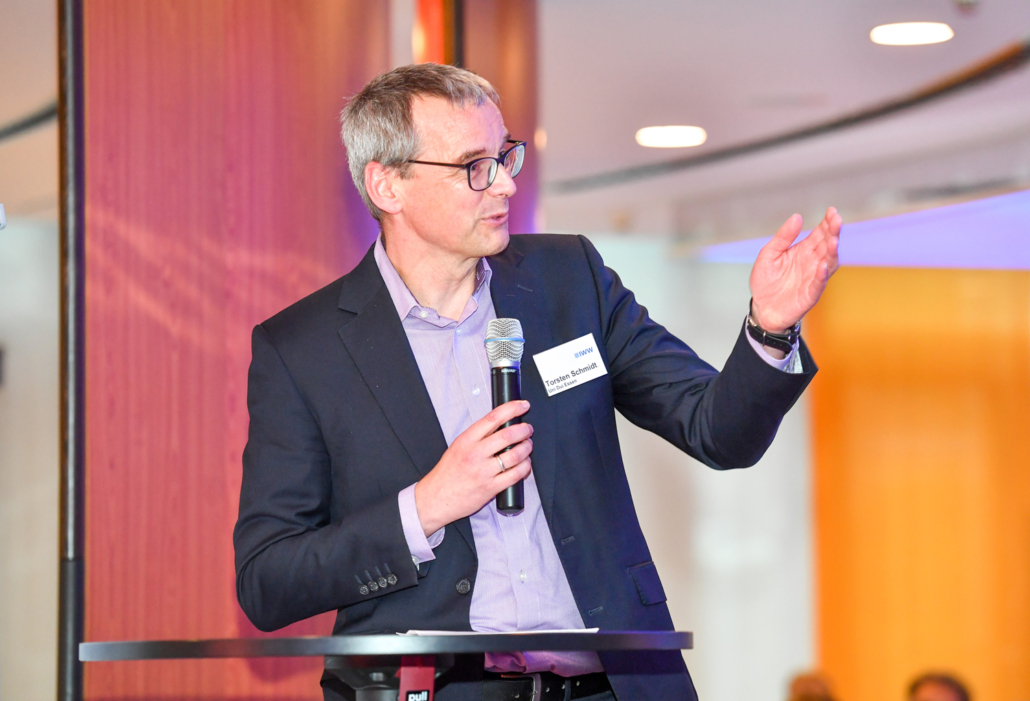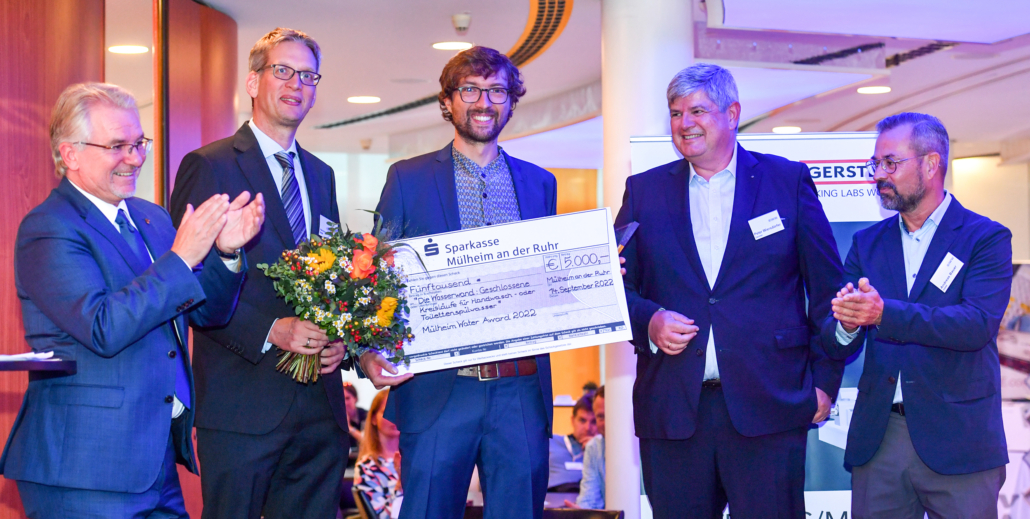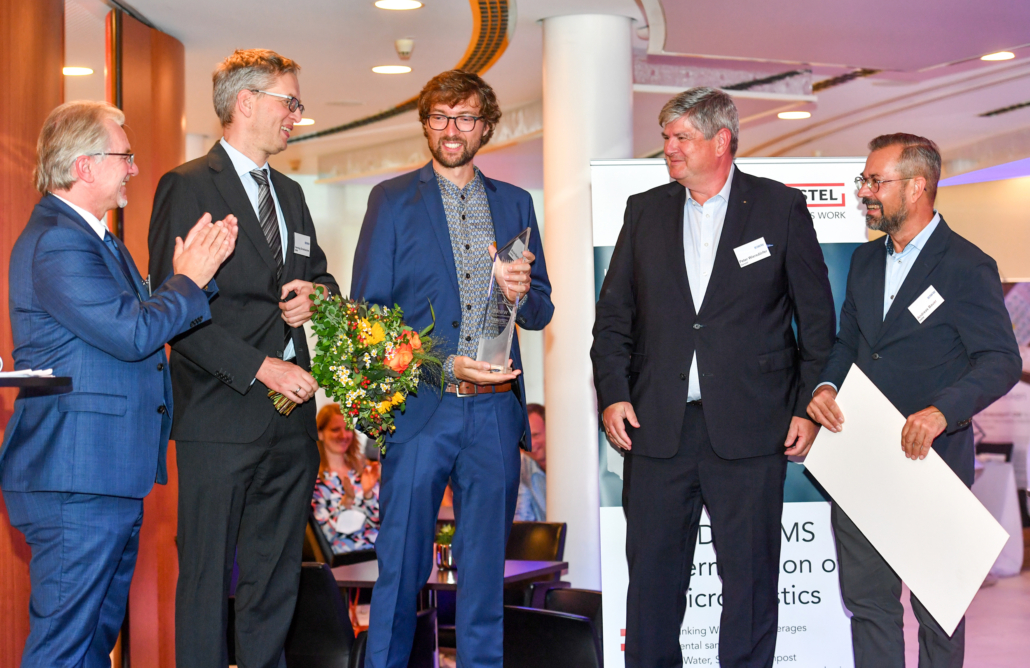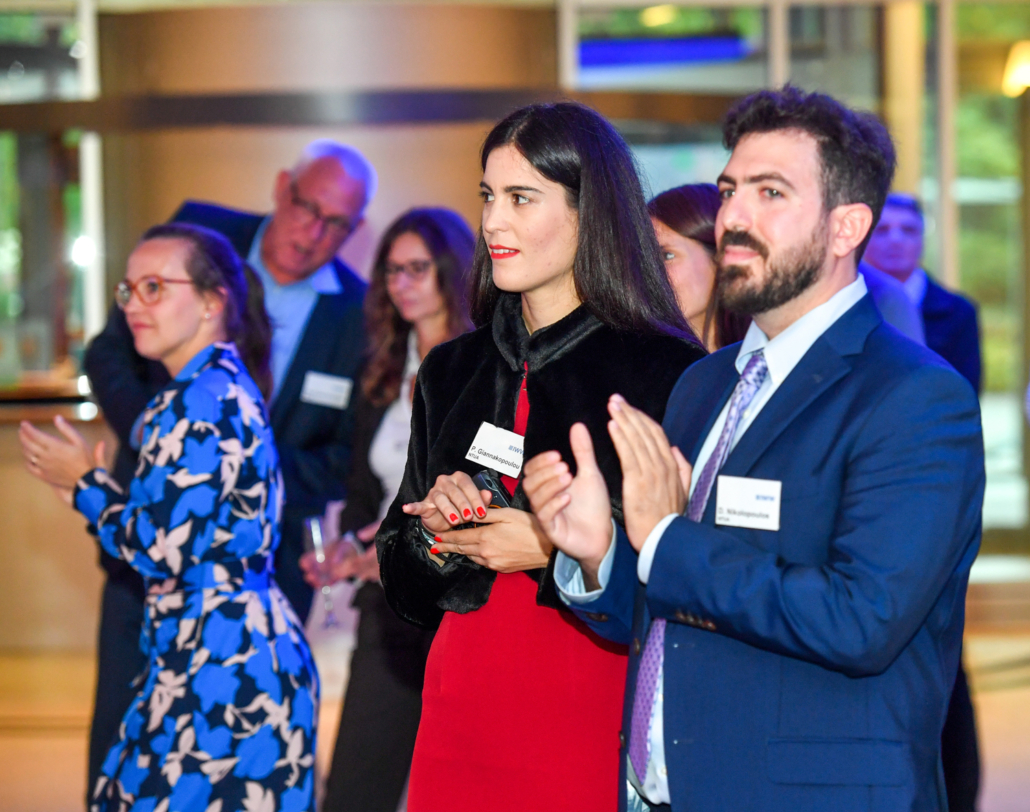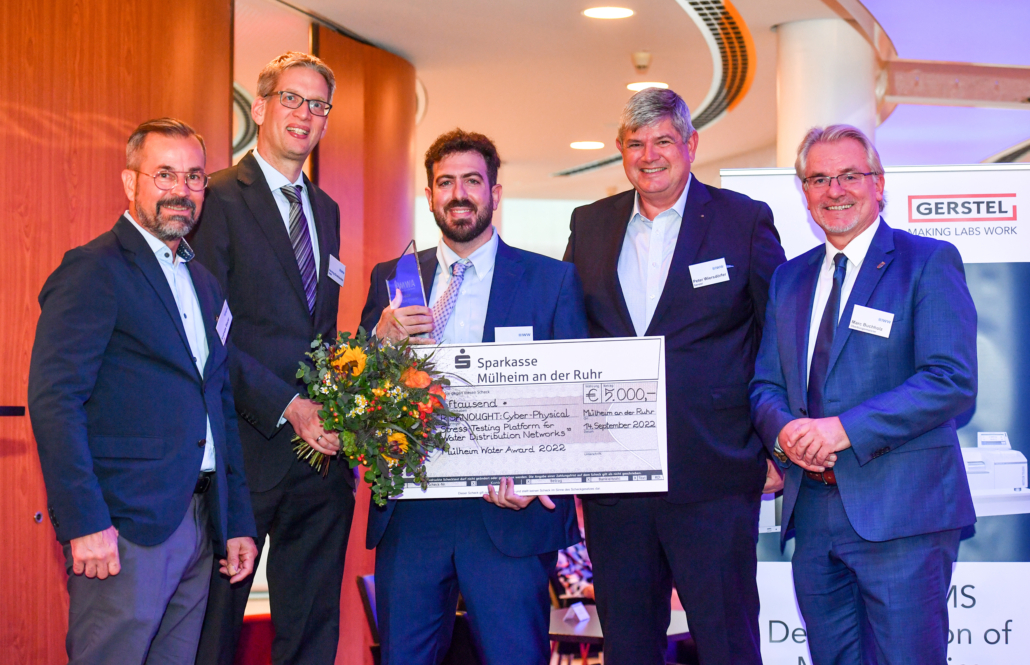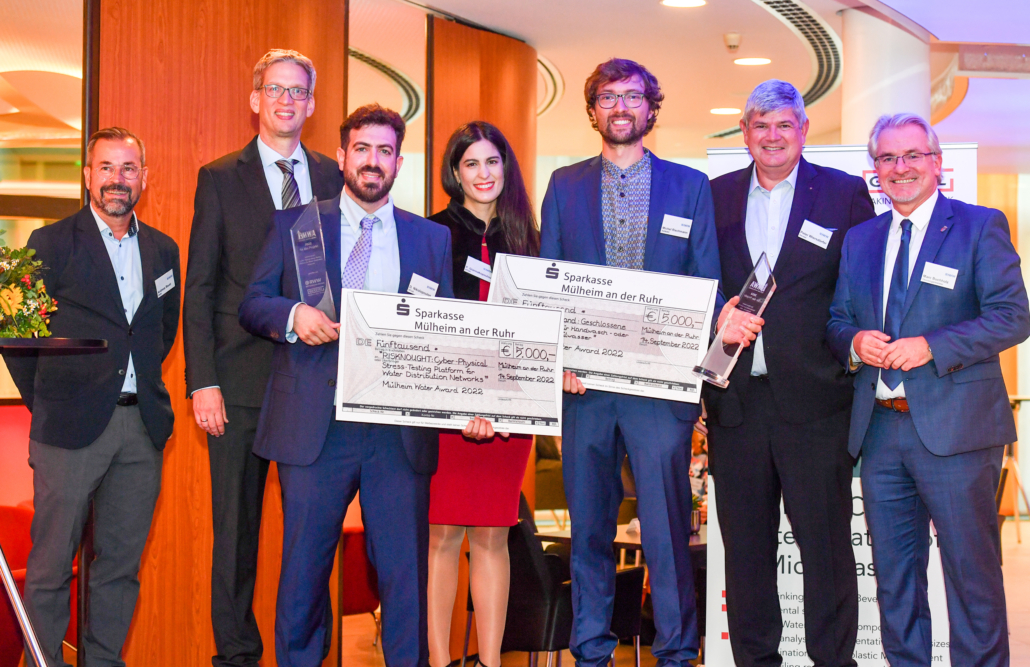Two winning projects for the Mülheim Water Award 2022
The presentation of the Mülheim Water Award 2022 took place on September 14, 2022 during the 5th Mülheim Water Analysis Seminar (MWAS 2022) in the Town Hall of Mülheim an der Ruhr.
The award was presented by Mülheim’s Lord Mayor Marc Buchholz as patron of the Award and Prof. Dr. Torsten C. Schmidt representing the Award’s jury.
This year, the international jury of the Mülheim Water Award decided to award prizes to two projects, which each received 5,000 euros prize money.
The first project
The water wall: Closed Water Cycles for wastewater from handwashing or toilet flushing
was submitted by Eva Reynaert and Prof. Eberhard Morgenroth from the Swiss Water Research Institute Eawag in Dübendorf. Their device recycles wastewater from hand washing and toilet flushing with the aim of complete reuse. This enables access to clean water for handwashing and toilet flushing in places without centralised infrastructure.
The project addresses several aspects of Sustainable Development Goal 6 set by the UN, such as providing sanitation and hygiene facilities, reducing pollution of water resources and increasing water use efficiency through water reuse.
The module has been developed and optimized over an extended period of time and successfully field tested in various applications. The innovative combination of technologies proven in the field has led to the low energy consumption and maintenance of the module.
The cooperation that has begun with industrial partners also enables further development of the components and large-scale practical application.
Award ceremony 2022 in the townhall of Mülheim an der Ruhr.
f.l.t.r..: Andreas Bauer (RWW), Dr. Henning Grotelüschen (RWW), Dionysios Nikolopoulos (Urban Water Management and Hydroinformatics Group), Panagiota Giannakopoulou (Begleitung Nikolopoulus), Michel Riechmann (Eawag – in Vertetung für Frau Reynaert und Herrn Prof. Morgenroth), Peter Wiersdörfer (GERSTEL), Marc Buchholz (Stadt Mülheim)
The second winning project, submitted by Dionysios Nikolopoulos and his team from the Urban Water Management and Hydroinformatics Group in Athens, Greece, is called
RISKNOUGHT: Cyber-Physical Stress-Testing Platform for Water Distribution Networks
This digital platform performs stress testing of water distribution systems with a focus on protection against cyber and physical threats.
The platform combines for the first time the use of hydraulic modelling, risk management, decision support systems and real-time data. Based on the standard EPANET software, the application is intuitive to use, facilitating its usage even in smaller water utilities.
Analyses of scenarios and simulations allow the identification of risks and the derivation of risk reduction measures. In this way, the platform assists in increasing the resilience of the entire system and preventing an economic loss due to cyberattacks.
The involvement of well-known and diverse water utilities from various European countries in the project makes for a practically relevant and applicable solution. By using RISKNOUGHT, water utilities can do justice to their responsibility of operating critical infrastructure.
Anbei einige Impressionen zur Verleihung:
